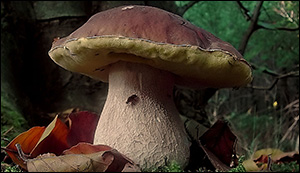Making batteries with portobello mushrooms
12. 10. 2015 | University of California | universityofcalifornia.edu
Can portobello mushrooms stop cell phone batteries from degrading over time? Researchers at the University of California, Riverside Bourns College of Engineering think so.
They have created a new type of lithium-ion battery anode using portobello mushrooms, which are inexpensive, environmentally friendly and easy to produce. The current industry standard for rechargeable lithium-ion battery anodes is synthetic graphite, which comes with a high cost of manufacturing because it requires tedious purification and preparation processes that are also harmful to the environment.

With the anticipated increase in batteries needed for electric vehicles and electronics, a cheaper and sustainable source to replace graphite is needed. Using biomass, a biological material from living or recently living organisms, as a replacement for graphite, has drawn recent attention because of its high carbon content, low cost and environmental friendliness.
UC Riverside engineers were drawn to using mushrooms as a form of biomass because past research has established they are highly porous, meaning they have a lot of small spaces for liquid or air to pass through. That porosity is important for batteries because it creates more space for the storage and transfer of energy, a critical component to improving battery performance. In addition, the high potassium salt concentration in mushrooms allows for increased electrolyte-active material over time by activating more pores, gradually increasing its capacity.
Read more at University of California
Image Credit: Wikipedia
-jk-




